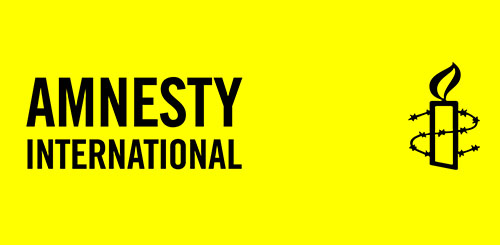The release of a woman forced to spend a decade behind bars in El Salvador after having pregnancy-related complications resulting in stillbirth must open the door for an end to the country’s extreme anti-abortion law, said Amnesty International.
Teodora del Carmen Vásquez was freed on Thursday after a court reduced her sentence, but at least 28 women remain imprisoned under the total abortion ban, according to women’s human rights organizations in the country.
“It’s encouraging to see Teodora stepping out of jail, where she should have never been in the first place, but El Salvador is still far from fully ensuring the rights of women and girls in the country,” said Erika Guevara-Rosas, Americas Director at Amnesty International.
“Authorities in El Salvador must urgently repeal this outrageous abortion ban which has created a pervasive context of discrimination, pain and injustice.”
In El Salvador, women who suffer pregnancy-related complications resulting in miscarriages and stillbirths are routinely suspected of having an abortion, which is banned in all circumstances. Prosecutors often charge them with ‘homicide’ or even ‘aggravated homicide’, which carries a penalty of up 50 years in prison.
Teodora suffered a stillbirth in 2007, after suddenly feeling serious pain while at work. Police arrested her as she lay in a pool of blood. She was later sentenced to 30 years for ‘aggravated homicide’ in a trial marred by irregularities.
El Salvador’s Ministry of Justice eventually commuted Teodora’s sentence but did not overturn the conviction or recognize her innocence. Her lawyers intend to clear her name and seek compensation and redress for the 10 years that she spent behind bars.
At least 28 other women are still incarcerated under El Salvador’s draconian abortion law. Those punished are disproportionately from impoverished backgrounds, with little access to education, health care or justice. In the 2014 report, “On the brink of death”, Amnesty International also found that in the cases documented the right to a fair trial and equality before the law were violated.
Amnesty International calls for an immediate moratorium on the enforcement of the abortion law, as recommended by the UN Committee for the Elimination of Discrimination Against Women (CEDAW) on 3 March 2017, with the objective of achieving the full decriminalization of abortion; the immediate and unconditional release of all those imprisoned on charges related to pregnancy complications; and for women to be guaranteed safe and legal access to abortion, at a minimum, when their life or their physical or mental health is at risk or in cases of rape, incest or severe and fatal foetal impairment.
Read more:
El Salvador: Failure to release woman jailed after miscarriage, outrageous step backward for justice
El Salvador: Release of woman jailed after miscarriage, a victory for human rights (News, 20 May 2016)
El Salvador’s total abortion ban sentences children and families to trauma and poverty (News/report, 30 November 2015)
El Salvador: Amnesty International Calls on El Salvador to decriminalize abortion (statement, 10 April 2015)
On the brink of death: Violence against women in El Salvador and the abortion ban in El Salvador (Report, 2014)





















